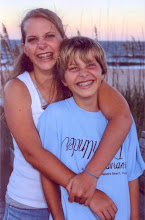For the speaker, the birth of Christ meant the death of something else, the death of something more important. The birth of Christ ultimately ended polytheistic worship for many people and at the end of the poem when the speaker is back home, he notices "an alien people clutching their gods" (line 42), so maybe the journey showed the speaker coming to terms with an ending of something he knew and was familiar with and starting another journey full of mysteries and the unknown. Rather than face this new unknown, though, the speaker would "be glad of another death" (line 44).
Monday, June 23, 2008
T.S. Eliot
T.S. Eliot's "Journey of the Magi" is not what you typically expect of a poem written about the three Magi that came to visit Jesus at his birth. Instead of a journey centered around following a star to see God in the form of a baby, the reader gets a sense of despair and that the journey is pointless. The speaker tells the audience of "cities hostile and towns unfriendly/And the villages dirty and charging high prices" (lines 14-15). The journey of the Magi to Bethlehem has been glorified in most cases, but Eliot's interpretation shows the Magi, even in the presence of the baby at the end of their long and difficult journey brings images of death and a birth that was "Hard and bitter agony for [them], like Death, our death" (line 39).
Subscribe to:
Post Comments (Atom)

2 comments:
Thanks for sharing your insights on the "Journey of the Magi". I do agree with you that this poem, as told by one of the wisemen, is not our typical Bible story of the three wisemen. As you have stated, in the traditional Bible story instead of a story surrounding a star, here in this poem we are told of the many difficulties that these wisemen had encountered making the journey pointless. However, it was very interesting to see how you have ended your blog by stating that it seems as if something positive came out of their discouraging trip. Having seen the child Christ Jesus who would not being changed and I am glad they did not continue in their old ways when they went back home.
Great insight.
Rachel,
In this brief post you notice several significant and surprising elements Eliot brings to this treatment of the Magi. I wish you had delved into the topic more deeply, however, because you seem to be on the right track, and what you have is good.
Post a Comment